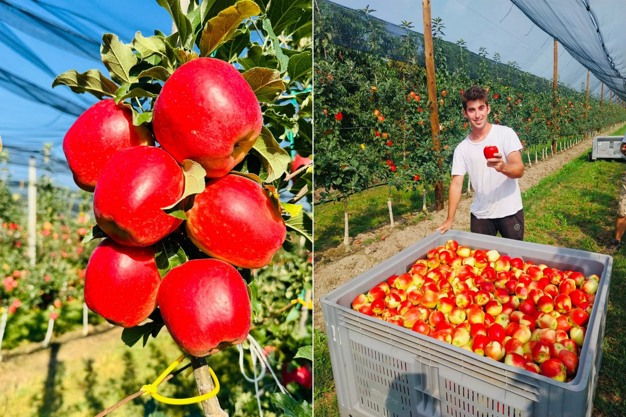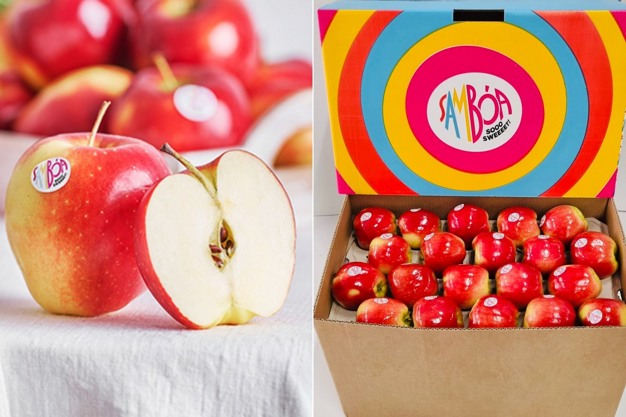The Rivoira Group's Sambóa apple project has been officially launched with the entry into commercial production of 4,000 tons. The firm's gaining a strong foothold in the extra-sweet segment, with three different varieties developed in Brazil that allow a year-round supply.

"We started the season on September 1 with the first variety, the Luiza, of which we expect to harvest around 1,800 tons in a period when there are no premium varieties in the extra-sweet segment, which stand out in terms of appearance, flavour and texture from conventional apples. We will continue with the Venice in January, with the prospect of reaching 1,200 tons, and we will finish with the Isadora in May, with around 1,000 tons," says Marco Rivoira, CEO of the Rivoira Group.
"With these three varieties, the goal is to offer consumers a product with the same appearance, flavour and texture throughout the year," he says. "It is a bicoloured apple, very attractive to the eye thanks to the contrast between red and yellow, which makes an immediate impact. It is also very crunchy and juicy, but what makes it stand out the most is its very sweet flavour, with a Brix that exceeds that of leading conventional varieties."

Marco Rivoira highlights the "Ripe on Tree" concept, certified by Bureau Veritas, as one of the keys to getting Sambóa apples to the consumer with maximum sweetness. "Handling a harvest with such sweetness requires a high degree of precision, while also adhering to the requirements of each distributor, both to ensure the value of the product and to avoid complaints at destination," he says.
"Last year we had a trial campaign with around 1,500 tons in wholesale markets in Italy and Spain, and it was a tremendous success, especially at the beginning of the season. We are sure that it will be very well-received by consumers."

Sambóa apples are currently grown only in Italy, although the company, which has exclusive worldwide rights to cultivate these varieties, is also considering growing them in other countries such as the United States, as well as in New Zealand and Chile in the Southern Hemisphere.
"For now, we are closing a very good cycle with these three varieties, although more could arrive in the future. Genetically, since their natural cross has been carried out in Brazil under the extreme conditions of recent years, they are highly adaptable to climate change. They need fewer hours of cold, are highly tolerance to heat and sun, and they are immune to diseases in Europe, such as the gromerella leaf spot."
For more information:
Marco Rivoira
RIVOIRA GIOVANNI & FIGLI spa
Via Mattona 174/c 12039
Verzuolo CN, Italy
marco@rivoira.it
www.samboa.it
